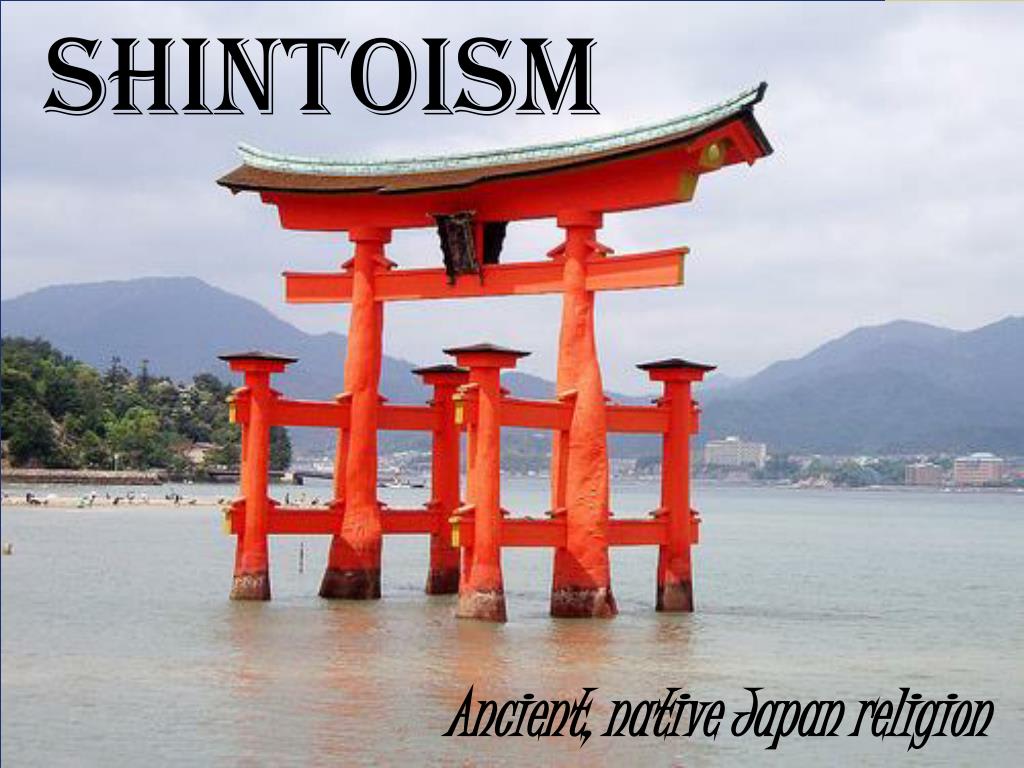Shintoism's Influence on Japanese Culture and Daily Life
Embodying the Principles of Goodness, Respect, and Purity

Shintoism is a religion that has been practiced in Japan for centuries. It is a nature-based religion that emphasizes respect for the spirits of nature and the ancestors. The followers of Shintoism believe that everything in nature has a spirit or a kami and that these spirits must be respected and honored.
One of the most important concepts in Shintoism is purity. The followers of Shintoism believe that they must purify themselves before entering a sacred space, such as a shrine or temple. This purification process involves washing one's hands and mouth, and sometimes even taking a ritual bath.
The story of Shintoism began long ago, in ancient Japan. In those days, people believed that the natural world was full of spirits and that these spirits had the power to help or harm them. To protect themselves, they built shrines and temples to honor the spirits and offer them gifts.
One day, a group of travelers came upon a beautiful forest. They were amazed by the towering trees, the trickling streams, and the singing birds. As they walked through the forest, they heard a voice calling out to them. "Welcome to our home," said the voice. "We are the spirits of this forest. We ask that you treat us with respect and kindness."
The travelers were taken aback by the voice, but they listened carefully. They realized that the spirits were asking them to follow a set of rules that would allow them to live in harmony with nature. The rules were simple: respect the spirits of nature, honor the ancestors, and strive for purity in all things.
The travelers were so impressed by the wisdom of the spirits that they decided to build a shrine in the forest. They offered gifts to the spirits, and they prayed for their blessings. The shrine became a place of worship for many people, and soon, the teachings of the spirits spread throughout Japan.
Today, Shintoism is still practiced in Japan and around the world. The teachings of the spirits have inspired people to live in harmony with nature and to honor the ancestors who have come before them. Shintoism is not just a religion, it is a way of life that encourages goodness, respect, and purity in all things.
Shintoism, as a nature-based religion, is deeply rooted in Japanese culture and has influenced many aspects of society. Let me provide some real-life examples of how Shintoism's principles of goodness, respect, and purity are embodied in Japanese culture and daily life.
One example is the practice of "O-Mairi," which is the act of visiting a shrine or temple to pay respect to the spirits and ask for blessings. This practice is still widely observed in Japan, and it is not uncommon to see people stopping by a shrine or temple on their way to work or school. Many Japanese people believe that by paying their respects to the spirits, they can receive blessings and good fortune in their lives.
Another example is the concept of "Wa," which is the Japanese term for harmony and unity. The concept of Wa is deeply rooted in Shintoism, as the religion emphasizes the importance of living in harmony with nature and respecting the spirits. This principle is evident in many aspects of Japanese culture, including the concept of teamwork in the workplace and the strong sense of community in Japanese neighborhoods.
Shintoism's emphasis on purity can also be seen in Japanese culture, particularly in the practice of "Misogi." Misogi is a purification ritual that involves washing one's body in a natural body of water, such as a river or waterfall. This practice is still observed in some parts of Japan, particularly by those who practice Shintoism. By washing away impurities, Misogi is believed to purify the body and mind and bring one closer to the spirits.
Another example of how Shintoism's principles are embodied in Japanese culture is the practice of "Mottainai." Mottainai is a concept that emphasizes the importance of not wasting resources, including food, energy, and other materials.
In Japan, Mottainai is taught to children from a young age, and many Japanese people try to live their lives sustainably and respectfully.
Shintoism's emphasis on respect for the ancestors can also be seen in many aspects of Japanese culture. An example of this is the practice of "Obon," which is a festival that honors the spirits of ancestors who have passed away. During Obon, families gather to clean their ancestors’ graves and offer food and gifts to their spirits. The festival is a time for families to come together and show respect for their ancestors, and it is an important part of Japanese culture.
Shintoism's emphasis on respect for nature is also evident in the Japanese concept of "Satoyama." Satoyama refers to the rural landscapes surrounding Japanese towns and cities, emphasizing the importance of maintaining a balance between human activity and the natural environment. Satoyama landscapes are home to a wide variety of plant and animal species, and they are seen as important for the health of the ecosystem. Many Japanese people try to preserve and protect Satoyama landscapes, and the concept has even been adopted by the United Nations as a model for sustainable development.
In addition to these examples, Shintoism has also influenced many other aspects of Japanese culture, including architecture, art, and cuisine. For example, many Japanese shrines and temples feature distinctive architectural styles that reflect the principles of nature and harmony that are central to Shintoism. Japanese art, such as the traditional art of flower arrangement or "Ikebana," also reflects the principles of simplicity and beauty that are emphasized in Shintoism. Finally, Japanese cuisine often features fresh and natural ingredients, and many traditional dishes are prepared in a way that emphasizes their natural flavors.
To wrap up, Shintoism is a religion that has deeply influenced Japanese culture and daily life. The principles of goodness, respect, and purity that are central to Shintoism can be seen in many aspects of Japanese society, from the practice of O-Mairi to the concept of Satoyama. Shintoism's emphasis on respect for nature and the ancestors has helped to shape Japanese culture into a unique and sustainable way of life.
About the Creator
Arun Kumar
Am a passionate Blogger and aspire to be a best-selling author. I am always willing to go that extra mile to make a difference in my life to create value for myself and others.






Comments
There are no comments for this story
Be the first to respond and start the conversation.